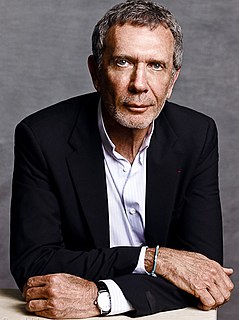A Quote by Edward C. Prescott
In the Great Depression, employment and investment were low because labor market institutions and industrial polices changed.
Related Quotes
These results add up to perhaps the most important investment lesson of all that can be drawn from this week's market anniversaries: Predicting turns in the market is incredibly difficult to do consistently well. That means that, if your investment strategy going forward is dependent on your anticipating major market turning points, your chances of success are extremely low.
Through much of its history, the US did not have high inequality as compared with Europe. Less so, in fact. That began to change in the industrial age, reaching a peak in 1928, after the forceful destruction of the labor movement and crushing of independent thought. Largely as a result of labor mobilization, inequality declined during the Great Depression, a tendency continuing through the great growth period of regulated capitalism in the early postwar decades.
The Great Depression was going on, so that the station and the streets teemed with homeless people, just as they do today. The newspapers were full of stories of worker layoffs and farm foreclosures and bank failures, just as they are today. All that has changed, in my opinion, is that, thanks to television, we can hide a Great Depression. We may even be hiding a Third World War.
I feel like I went through the Great Depression. All these companies are being successful around you, you're on that track, and then the market collapses, and you're out of a job. You're trying to save your investors' investment, and it doesn't work, and you sell the company for nothing. It was brutal.
The government is now in a position to do what Franklin D. Roosevelt did during the Great Depression of the 1930s - use a crisis of the times to create new institutions that will last for generations. To this day, we are still subsidizing millionaires in agriculture because farmers were having a tough time in the 1930s.

































